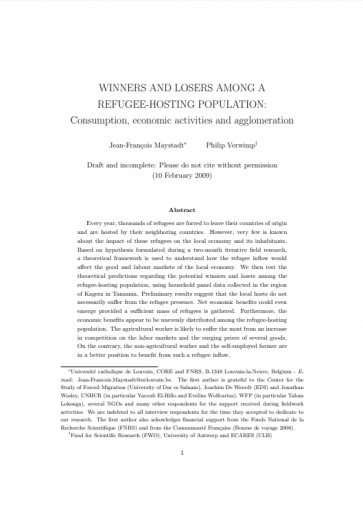Winners and losers among a Refugee Hosting Population: Consumption, economic activities and agglomeration
Every year, thousands of refugees are forced to leave their countries of origin and are hosted by their neighboring countries. However, very few is known about the impact of these refugees on the local economy and its inhabitants.
Based on hypothesis formulated during a two-month iterative field research, a theoretical framework is used to understand how the refugee inflow would affect the good and labour markets of the local economy. We then test the theoretical predictions regarding the potential winners and losers among the refugee-hosting population, using household panel data collected in the region of Kagera in Tanzania.
Preliminary results suggest that the local hosts do not necessarily suffer from the refugee presence. Net economic benefits could even emerge provided a sufficient mass of refugees is gathered. Furthermore, the economic benefits appear to be unevenly distributed among the refugee-hosting population.
The agricultural worker is likely to suffer the most from an increase
in competition on the labor markets and the surging prices of several goods. On the contrary, the non-agricultural worker and the self-employed farmer are in a better position to benefit from such a refugee inflow.



